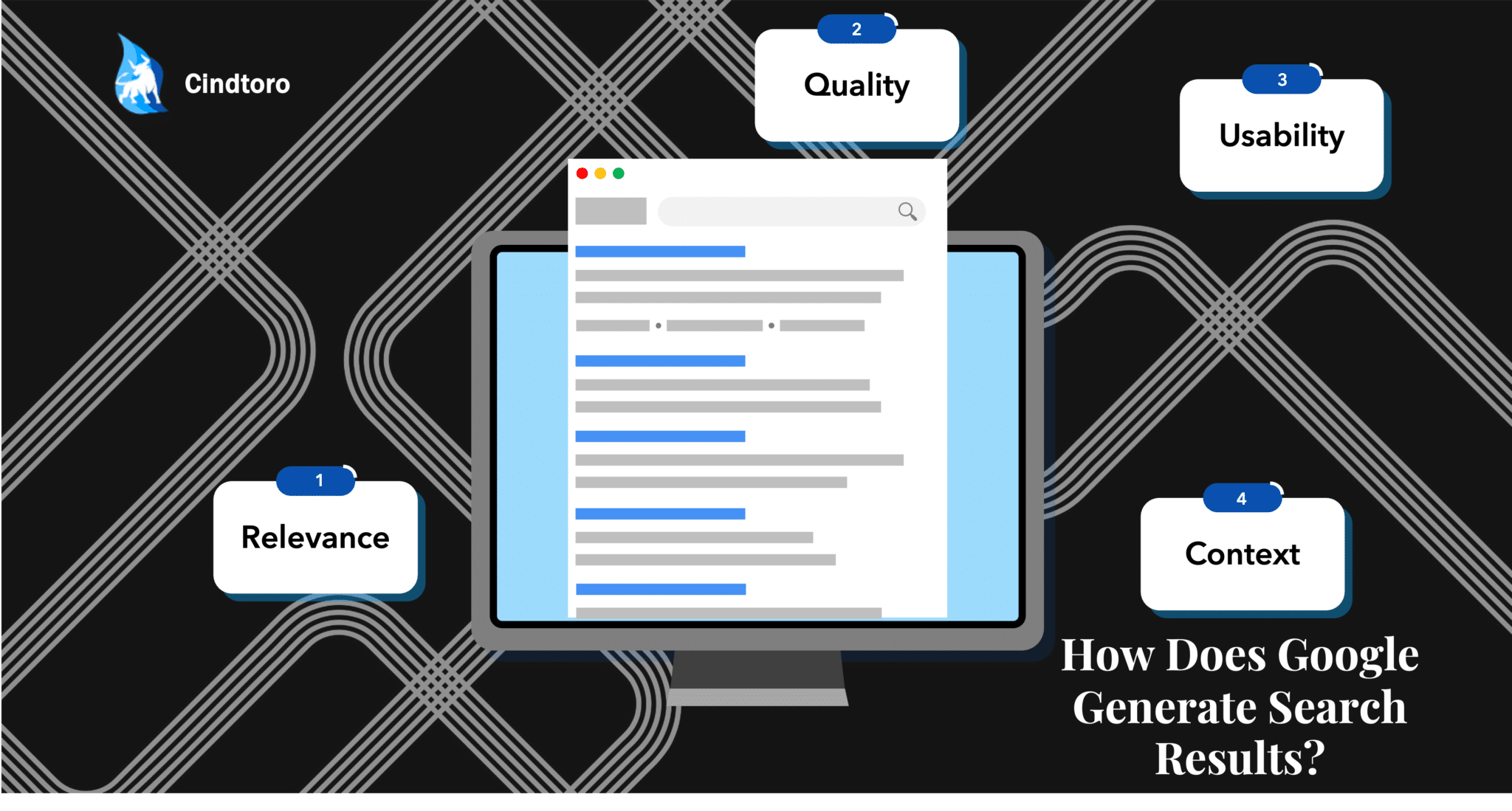Digital marketing can be a frustrating journey. Site search performance can be a significant factor for ROI. Ranking on the first page of a Google search query can mean a greater potential for business exposure.
It’s important to understand how Google results are generated. According to Google, Google’s ranking systems are designed to sort through hundreds of billions of web pages and other content in our Search Index to present the most relevant, useful results in a fraction of a second. Key factors that search algorithms focus on are keywords, relevance and usability of pages, expertise of sources, and your location and settings.
Meaning of a Google Search Query
To return relevant results related to your search, Google needs to determine the meaning behind the query. Google asks the question, “What is this user trying to say? What question do they need answered?”
Google has built language models to decipher how the words entered in the search box match up to the most useful content available.
This can mean something as simple as recognizing and correcting spelling mistakes. You can see this at the very top search bar on the left-hand side. “Showing results for _____”. In addition to correcting spelling, Google systems understand words and intent are related, so they can find relevant information even if they don’t contain the exact words used.
For example, if you type in “online marketing agency near me”, there may be a page on someone’s website that says, “digital marketing agency near me”. Google is aware of synonyms in content that can lead to you to the same result. Google is also aware that many queries are searching for businesses that are local to them. They can do this by asking the user “Google.com would like to use your current location.” This can narrow the search down to local businesses.
Relevance of Content
Next, Google systems analyze content across the web to assess whether it contains information that may be relevant to your search query. Same or similar keywords that appear anywhere on a single webpage are easily generated.
Google also transforms data into signals that help their systems better estimate relevance. The algorithm assesses if a page contains other relevant information beyond simply finding ‘local marketing agency’. The search bar may generate similar results such as billboard advertising, ad campaigns, and website development.
This explains why it is so important to be putting out consistent, relevant content. Ensuring that the information on your website is relevant to your business and contains proper keywords solidifies that users will have no trouble finding your site.
Quality of Content
Quality of content is another key factor in generating search results. High quality content is useful content. If prominent websites link or refer to content on your site, this is often proved to be a good sign that the information is well trusted.
Having other reputable businesses verify your content as valid can be sought after testimonials. Google also continues measures and assesses the quality of content to ensure that they’re achieving “right the balance of information relevance and authoritativeness to maintain your trust in the results that you see.”
Usability of web pages
Google systems also look at page experience factors. Page experience factors include ease of navigation, clear display for mobile devices, free of distracting advertisements, and more.
Answering “yes” to the questions below means your business provides a good page experience:
- Are pages opened in a secure URL?
- Secure URL should begin with “https” rather than “http”. The “s” in “https” stands for secure.
- The lock symbol and related URL containing “https” mean that the connection between your web browser and website server is private and encrypted.
- Encryption means that it prevents other from intercepting any connection between your browser and your website’s server.
- Does content display well for mobile devices?
- Mobile websites that can be easily viewed and navigated make it easier for customers to contact or find new businesses on-the-go.
- A site that is compatible with all devices helps establish that the company is up to date on current technology, which increases the reach of their audience.
- Does the content lack an excessive number of ads that distract from or interfere with the main content?
- Excessive ads can distract from the main content.
- They can also make the page difficult to navigate, and users can get frustrated easily.
- How easily can visitors navigate to or locate the main content?
- Pages that are easy to navigate contribute to a positive user experience, improves SEO, and presents a clean, structured appearance.
- Feature menu links like Home, About Us, Services, Testimonials, and Contact Us are clearly displayed.
- Is the page designed so visitors can easily distinguish the main content from other content on your page?
- Most websites may include external links to other websites, such as Facebook, Instagram, or Google.
- External links placed at the top or bottom of the page free clutter on the main page.
- Graphical elements are not obtrusive, and the main menu is easy to navigate to.
Context and Settings
Information such as your location, past search history, and settings to ensure the results are useful and relevant for users in that moment.
For example, if you’re visiting California and search “restaurants near me”, Google will show restaurants that are local to the area you’re in now. Similarly, if you search “restaurants near me” when you’re back in your city of Orlando Florida, Google will show restaurants local to your city.
These are the five key factors of a Google search query: meaning, relevance, quality, usability, and context.

